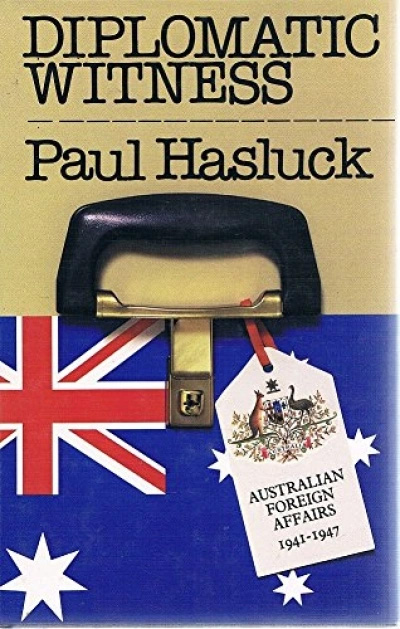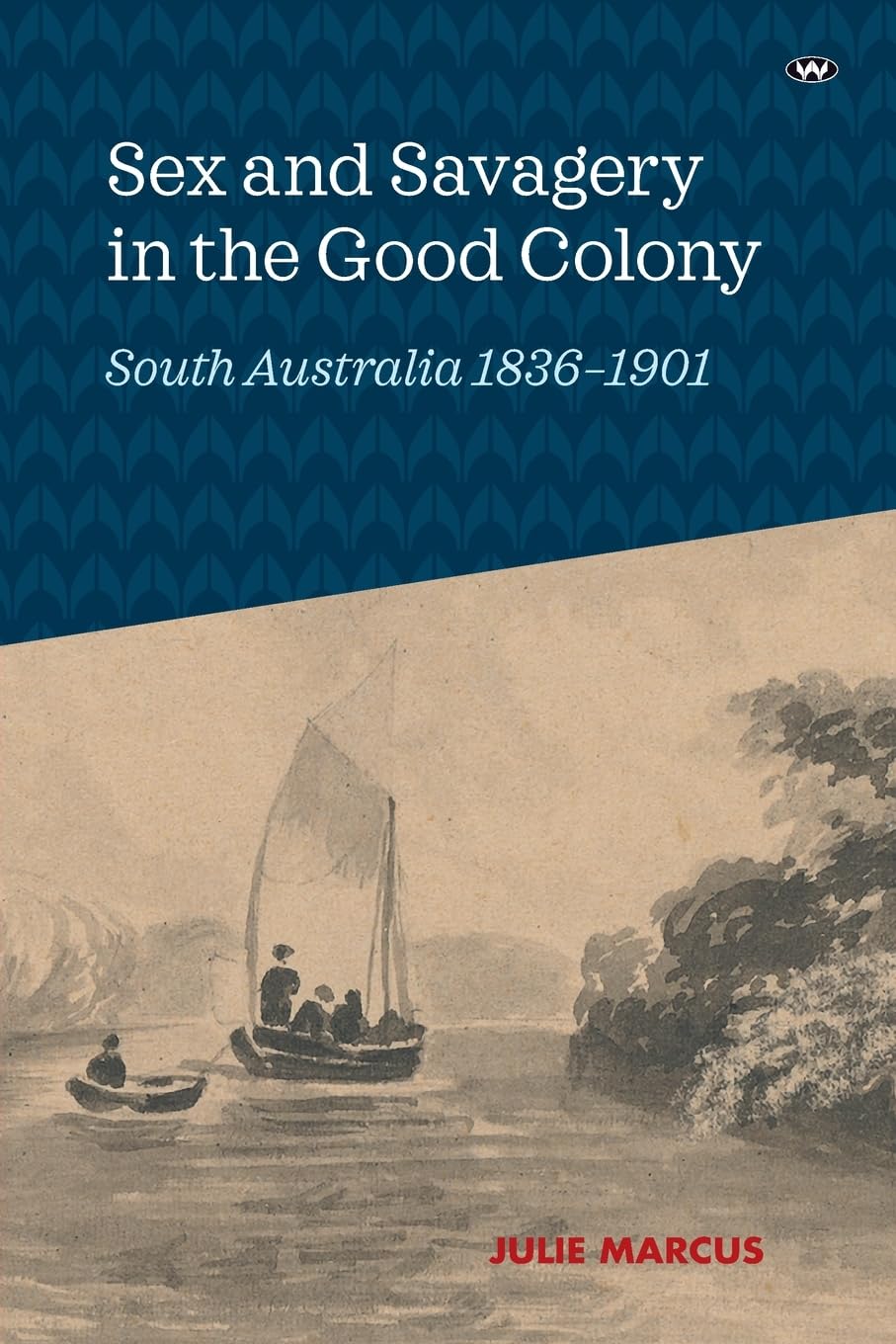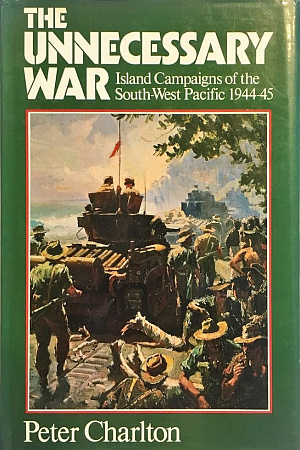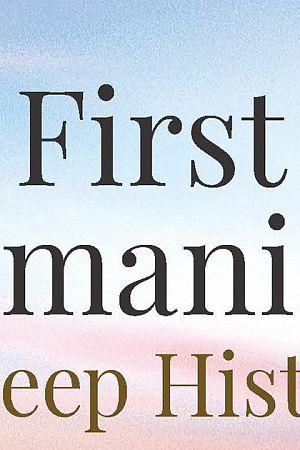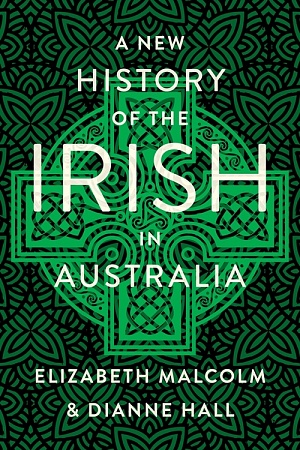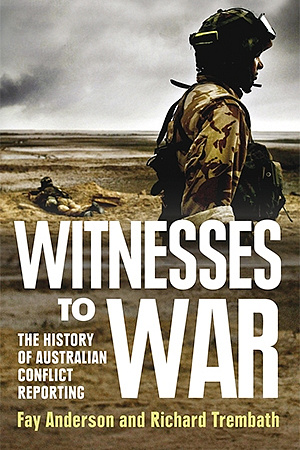Diplomatic Witness: Australian Foreign Affairs 1941-1947
Melbourne University Press, $25.00
Trial by Hasluck
Sir Paul Hasluck writes this book, so he says, as a witness, seeking no higher appreciation than Montaigne’s remark that it reflects the ‘author’s sincerity “free from vanity when speaking of himself and from partiality and envy when speaking of others” ’. However, Hasluck is not so much witness as judge, and hanging judge at that. If the book is free from envy, the absence seems due to his certainty about his own opinions and place. If there is no partiality, there is at least a tendency to make assessments of attitudes and strategies on the unstated criterion of whether they conform to Hasluckian models.
As for sincerity, consider his observation concerning H.V. Evatt, the chief sufferer of his sometimes heavy hand, humor and prose: ‘… we resumed something like our old relationship of mutual respect’. Respect? At this stage in the book Hasluck has already chronicled Evatt’s jealousy, nastiness, ‘inability to trust others or even to respect their separate identity’, his expectation of ‘personal attachment to his own interests without having the qualities that attract and hold personal loyalty’, and his distortion of the record ‘both by what he reported and what he did not report’. He has noted that Evatt’s ‘most natural and unaffected shows of emotion were for little children’ but ‘once anyone passed the age of four he started to become suspicious of them …
Hasluck goes on to mention Evatt as being ‘authoritarian so long as he could be the authority’ and ‘in many matters not considerate of other people or sensitive to their distress’. Even when he takes off the black cap, he shows little mercy. He credits Evatt with ‘a deep and genuine Australianism – a football barracker’s type of patriotism – which made him insist at all times that his country had to get a fair go’. And he sums up Evatt’s time on the world stage: ‘If one conceives of Australia’s role in world affairs as a stinging fly Evatt was a good foreign minister’. All this is not to say that Hasluck does not provide evidence of Evatt’s ministerial deviousness and paranoia, pay tribute to his energy and idealism, and detail those personal idiosyncrasies which indicated the tragedy to come. But he does not stick to his high-proclaimed brief as witness, even if witness for the prosecution.
Nor does he seem to concede the possibility that other world views – and views of the decolonisation process or the relationship between public servants and politicians – might be valid. Quoting his own report on the 1942 Mont Tremblant conference on post-war objectives, he refers to some non-official Americans’ ‘strong obsession that the forms of self- government and political liberty are the be-all and end-all of life for native people in colonial regions’. It is a back-of-the- hand remark which reflects Hasluck’s later policy of gradualism when, as Minister for External Territories, he had charge of Papua New Guinea. He resisted setting a time-table for self- government and independence. Undoubtedly there were virtues in the evolutionary approach, but such an approach did not take into account the beneficial and catalytic effects of a target date or the international realities in a world where nationalism was a growing force and the sun was setting fast on the old imperialism. Yet during the setting-up of the United Nations, Hasluck was persistently critical of Evatt for ‘losing sight of the rocks of power politics under the full flood of internationalism’, for ‘never reflecting on the world situation’, for seeming ‘unaware of many of the realities of international relations’.
Hasluck also seems to lose sight of a few rocks when he discusses the minor theme of his book, the relationship between the public service and politicians. On the concluding page he says: ‘The ideal in my view is to have a strong and independent and non-political public service and a vigilant and effective parliament to give checks and balances to the executive. Alongside that ideal we need ministers who are both intelligent and strong enough and so clearly answerable to parliament that they give checks and balances to any trend towards rule by a bureaucracy’.
The present public service is a source of grave disappointment to Hasluck. He finds that public servants who are restrained by the conventions of public service anonymity and of ministerial responsibility and their own respect for the superiority of ministers and parliament in a constitutional democracy’ are in a steadily decreasing minority. And he writes of the ‘egregious vanity of the gnomes of the democracy’. The fault, he says, is due to the weakness of ministers. Indeed, during 30 years or so ‘the major weakness in constitutional democratic government in Australia ... is in the quality and capacity of ministers’.
He thinks that the principles of the public service, damaged by wartime Labor administration and restored by Menzies, only to be eroded on Menzies’ retirement, have now been permanently changed. Hasluck’s own statement of these principles is contained in his speech after his resignation as a public servant in 1947: ‘(the public service) continues unchanged no matter what ministry takes office and, in discharging its duties, does not distinguish between one ministry and another but serves all faithfully. It has continuity while ministries come and go. It is not limited in its loyalty to any particular ministry but seeks to service the government of Australia in the highest and most comprehensive sense of that term. It should know no party other than Australia’.
Hasluck also says that ‘in our system of government it is proper that public servants should try to shape policy and to take part in decision making. It only becomes improper when they use methods appropriate to the politician but inappropriate to the public servant’. But were those Menzian public service days really so golden? Did philosopher kings-who-knew-their-place walk the corridors? Would not those public servants who properly ‘should try to shape policy' themselves be shaped by upbringing and by the social and political environment? Perhaps it was not totally unreasonable for Labor to suspect that 23 years of conservative rule might have shaped part of the top echelon of the public service in a conservative mould. Perhaps Hasluck does the public service a disservice by setting an impossible ideal.
However, if this book contains some annoying elements of trial by Hasluck, it nevertheless gives a fascinating insider’s account of foreign-policy making and the problems practitioners faced in wartime. Present practitioners will find in it useful pointers towards a case for the defence of a department which is battling to maintain primacy in foreign policy advice and formulation.
